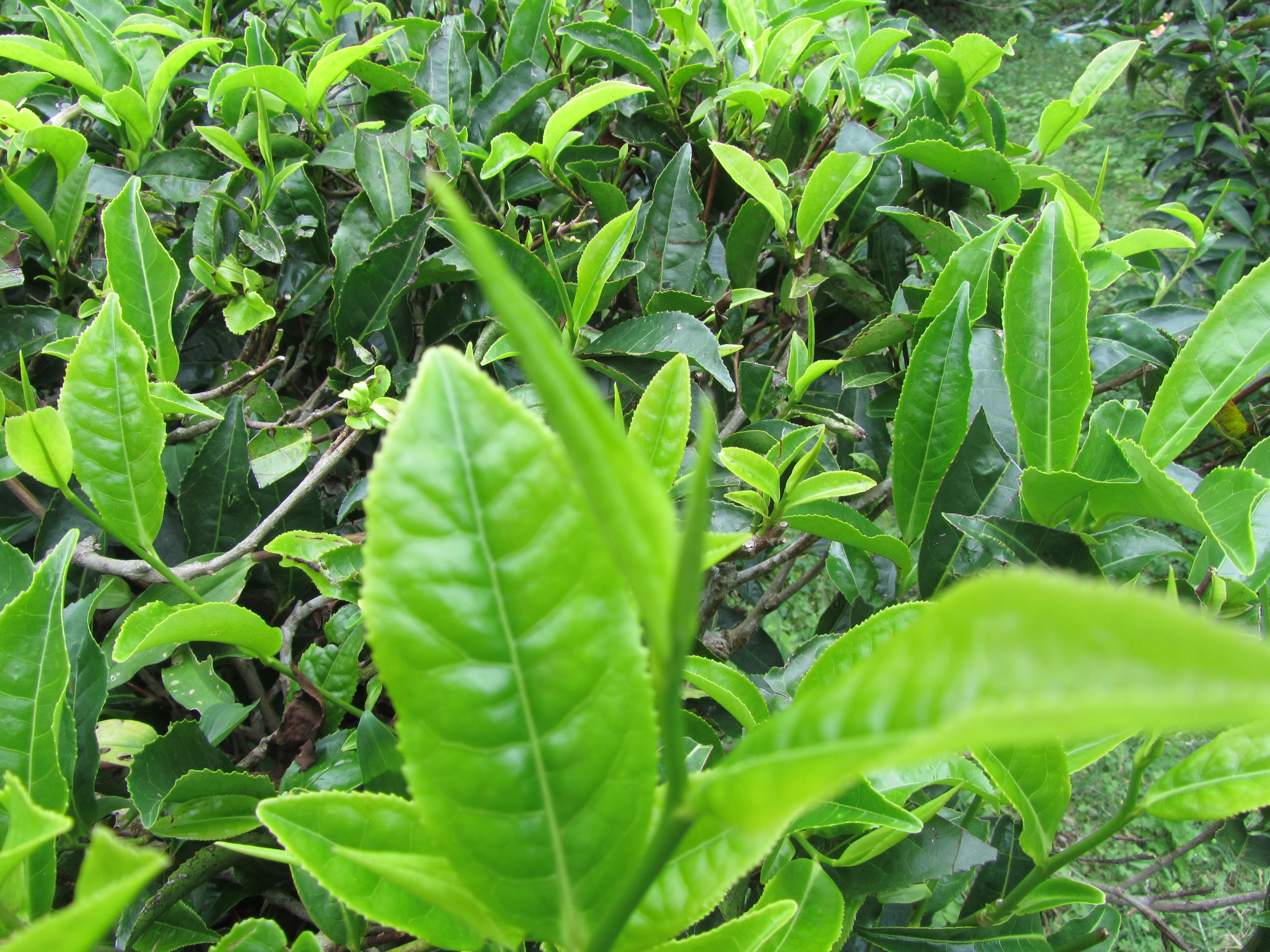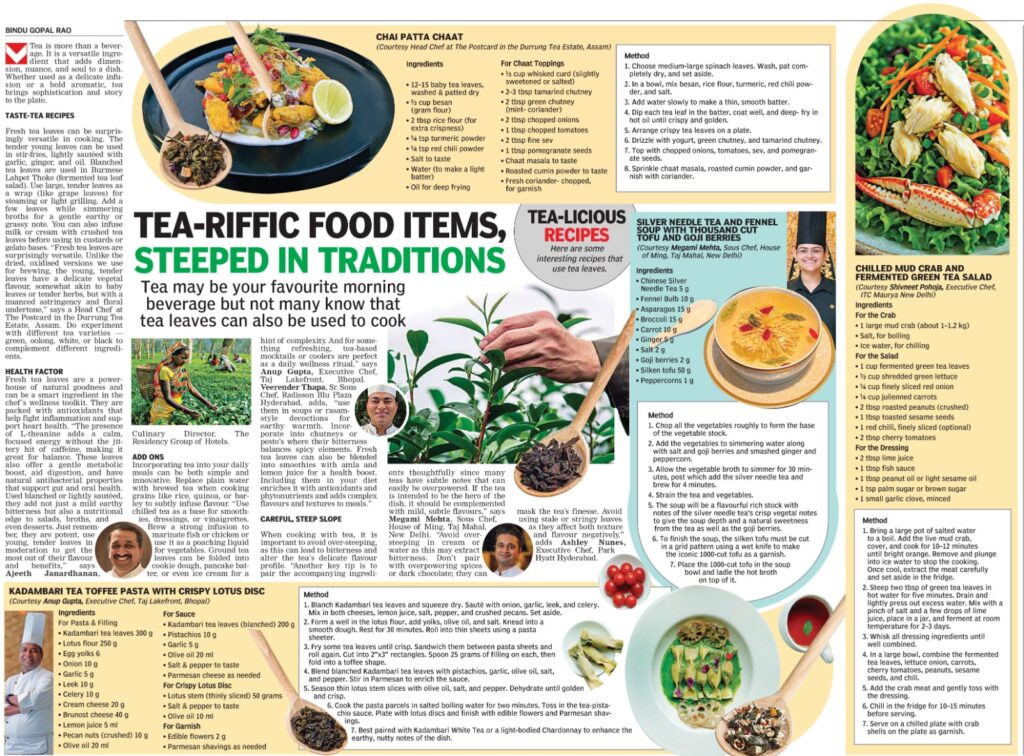
Fresh tea leaves aren’t just for brewing—they’re a secret ingredient waiting to be explored. Their subtle, earthy notes beautifully enhance both savoury and sweet preparations. When infused into broths, risottos, or veloutés, they lend a quiet complexity without overpowering. In marinades, they tenderise proteins while delivering a gentle umami depth. Finely ground, they add intrigue to dry rubs and crusts for grilled meats. And in the pastry kitchen, tea shines in green tea cakes, matcha shortbread, and infused custards—elevating desserts with elegance and aroma.
Fresh tea leaves are packed with wellness benefits. They’re naturally rich in antioxidants like catechins and polyphenols, which combat oxidative stress and support heart health. The synergy of L-theanine and caffeine found in tea promotes mental clarity and calm alertness—making it a preferred choice over conventional stimulants. Regular intake has been associated with improved metabolism, reduced inflammation, and even enhanced immunity. Tea’s gentle diuretic and detoxifying properties make it a valuable addition to a balanced diet, aiding digestion and supporting overall well-being.
Always steep tea at the right temperature and for the right duration to avoid bitterness. Store your tea leaves in a cool, dry place in airtight containers to preserve their freshness. Most importantly, treat tea as an ingredient, not just a beverage.
Don’t over-steep or re-use tea leaves beyond their flavor capacity. Avoid combining boiling tea with honey—wait for it to cool slightly to retain the honey’s natural benefits. And steer clear of drinking strong tea on an empty stomach, as it may cause acidity in sensitive individuals.
Read the full story that first appeared in Deccan Chronicle dated June 2, 2025 here:


Leave a Reply